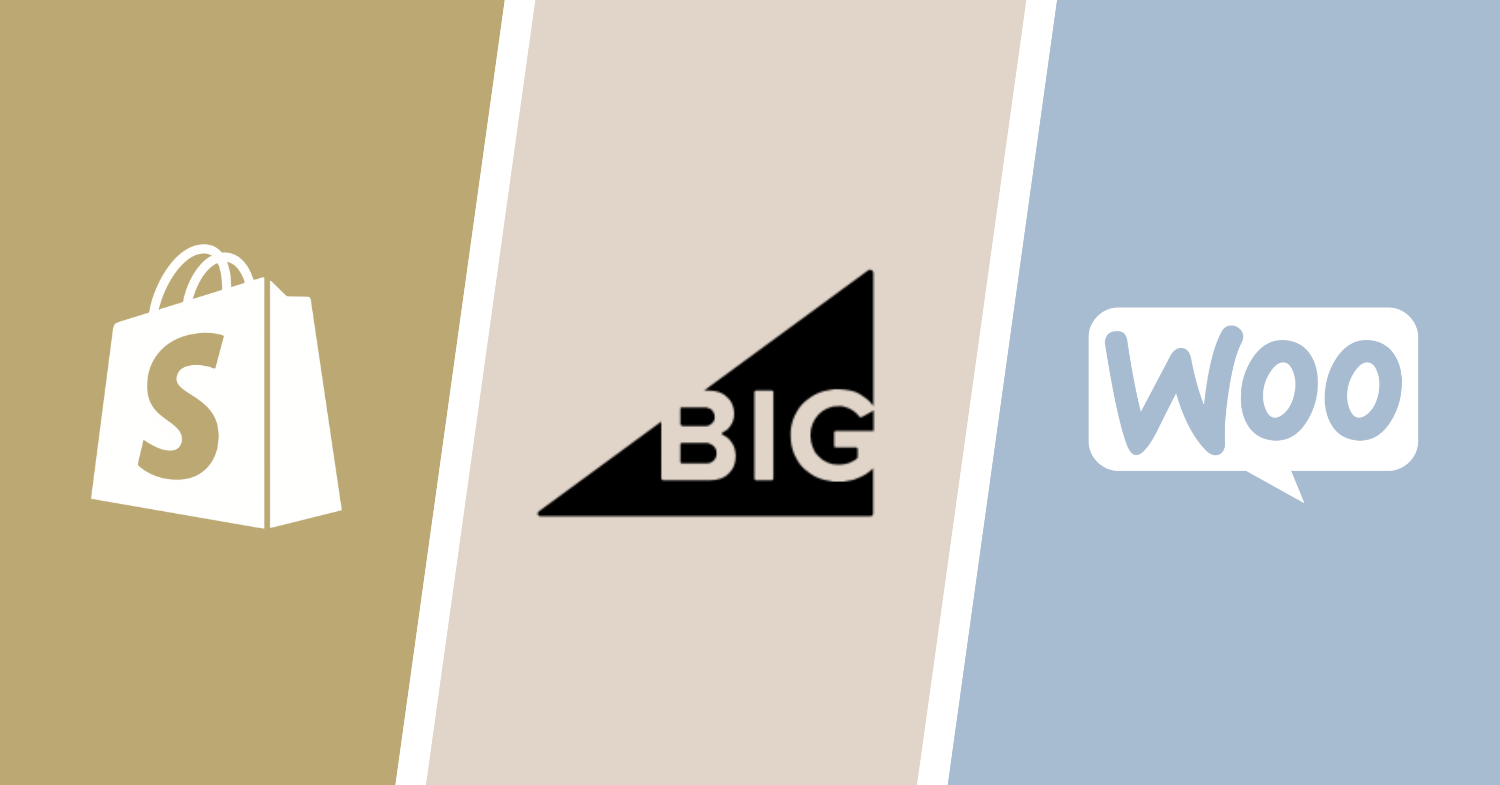When launching or scaling an online store, choosing the right eCommerce platform can feel like a make-or-break decision. Among the most popular platforms — Shopify, WooCommerce, and BigCommerce — each has strengths and weaknesses that can make them ideal for certain businesses.
In this blog, we’ll break down the key ingredients of each platform — price, ease of use, customization options, and conversion potential — so you can serve up success with the perfect platform for your business goals. Let’s dig in!
Shopify
Price
Shopify’s pricing is as straightforward as a simple vanilla sponge: plans start at $29/month for the Basic option, with higher tiers at $79/month and $299/month. For a smaller nibble, Shopify’s $9/month “Lite” plan allows you to sell on an existing website with an embedded buy button.
However, Shopify does charge transaction fees (unless you use Shopify Payments), which can take a bite out of profits for businesses processing a high volume of sales.
Ease of Use
If you’re new to baking (or in this case, eCommerce), Shopify is your perfect starter kit. Its drag-and-drop editor makes whipping up a store a breeze, even for beginners. The platform is designed to be intuitive, making it easy to stay focused on your business without getting lost in the technical details.
Customization Options
Shopify offers a variety of free and paid themes to make your store look like the top-tier brand it deserves to be. However, advanced customization may require third-party apps or developer assistance, which can quickly add to your overall costs.
Conversion Rates
Shopify users report an average conversion rate of 2.6%, with high-performing stores reaching 3% or more. Thanks to its mobile-friendly design and seamless checkout process, Shopify helps ensure that visitors don’t abandon their carts before reaching the finish line.
WooCommerce
Price
WooCommerce is like a customizable recipe — you can add or subtract ingredients based on your needs. As a free WordPress plugin, WooCommerce itself doesn’t cost a dime. However, you’ll need to factor in hosting, SSL certificates, themes, and other add-ons. Depending on your choices, the costs can range from budget-friendly to premium pricing.
The cherry on top? WooCommerce doesn’t charge platform-specific transaction fees. You’ll only need to account for fees from your chosen payment gateway, such as PayPal or Stripe.
Ease of Use
WooCommerce is relatively easy to set up, especially if you’re familiar with WordPress. The setup wizard guides you through the basics, but adding advanced features can get a little messy (like flour on the counter). You might need some technical skills — or a helping hand from a developer — if you want to fully customize your store.
Customization Options
WooCommerce truly shines here. As an open-source platform, it offers endless possibilities for customization. Whether you want a sleek minimalist storefront or a dazzling display of products, WooCommerce gives you the freedom to bake your brand exactly how you envision it.
Conversion Rates
WooCommerce doesn’t provide built-in conversion tracking, but integrating Google Analytics can help you measure success. As with most platforms, conversion rates typically range between 2-3%, with design and user experience playing key roles.
BigCommerce
Price
BigCommerce keeps things simple with all-inclusive pricing plans. Standard plans start at $29.95/month, followed by Plus at $79.95/month and Pro at $299.95/month. While slightly pricier than Shopify, BigCommerce doesn’t charge transaction fees — a sweet deal for businesses with high sales volumes.
Bonus: Pay annually and save 10%, or take advantage of a 15-day free trial to test the waters before committing.
Ease of Use
BigCommerce is a fully hosted platform, so you don’t need to worry about handling hosting or security certificates. While the onboarding process is thorough, the platform’s extensive features create a steeper learning curve. Once you get the hang of it, however, BigCommerce provides all the tools you need to run your store efficiently.
Customization Options
BigCommerce includes built-in features that other platforms require apps for, such as advanced marketing tools and SEO capabilities. With over 12 free themes and additional paid options ranging from $150 to $300, you can easily design a store that matches your brand’s aesthetic.
Conversion Rates
BigCommerce users report conversion rates similar to Shopify, averaging between 2-3%. Its robust built-in features, such as product reviews and discount tools, help boost conversions and customer retention.
The Final Verdict

Choosing between Shopify, WooCommerce, and BigCommerce ultimately depends on your business’s needs, technical expertise, and growth plans:
- Shopify is ideal for beginners who want a simple, all-in-one solution. It’s user-friendly and integrates well with marketing tools, but transaction fees and limited customization may pose challenges for advanced users.
- WooCommerce shines when flexibility and control are a priority. It’s cost-effective for smaller stores but may require technical know-how to unlock its full potential.
- BigCommerce offers robust features out of the box, making it an excellent choice for larger businesses ready to scale. The learning curve is higher, but the absence of transaction fees can save money long-term.
No matter which platform you choose, CakeCommerce can help you get the most out of your online store. From Shopify customization and SEO to WooCommerce consulting and BigCommerce web design, we provide tailored solutions to help your business thrive.






